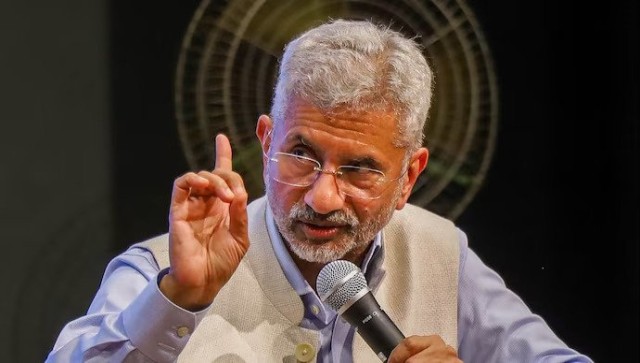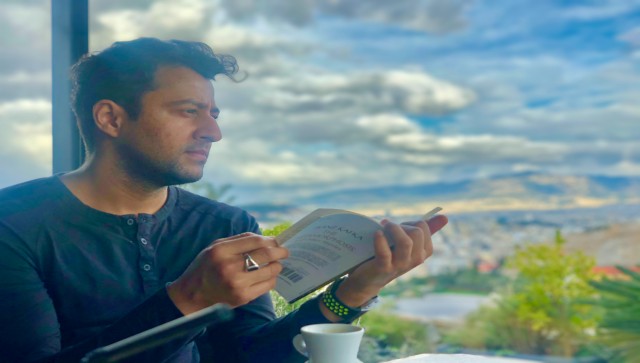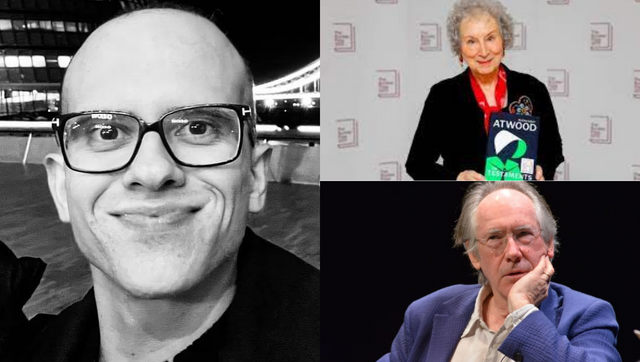Call it serendipity.
Many years ago, author and journalist Andrea di Robilant was on a walk with a few friends in Venice when they entered a property by mistake. It turned out to belong to Gianfranco Ivancich, brother to Adriana, the young Venetian girl who captured the attention of Ernest Hemingway and became his muse. At the time, Gianfranco was well into his nineties and had recently had a stroke. Instead of kicking out the trespassers, he invited them home for a cup of tea. During that conversation he happened to mention that he recently sold the last batch of Hemingway’s letters to the JFK Library in Boston. You could see Robilant’s ears perking up.
“Initially I wasn’t so much fascinated by Hemingway as I was by the material I found: a rich correspondence between him and Adriana, the 18-year-old girl he met in Venice and fell in love with. It seemed to me the letters showed Hemingway in an interesting new light: tender, generous, protective, deeply sentimental. I thought there was an interesting story to tell. And it was an interesting entry point for me into Hemingway’s life,” says Andrea. In 2018, he released Autumn in Venice: Ernest Hemingway and his Last Muse, a book that is a deep dive into the relationship between the writer and the woman who inspired him to write the seminal, Pulitzer Prize-winning The Old Man and the Sea. Fun fact: Andrea’s great uncle, Carlo di Robilant, was a part of Hemingway’s coterie of writers back in 1948.
Andrea will be speaking about this book and his other work at the Zee Jaipur Literature Festival 2019. It is his second appearance at the festival, which he says is a ‘unique opportunity to listen to writers from Asia, Africa and the Indian subcontinent and get a sense of where things are in the world, away from the Atlantic pond’.
Andrea’s first visit to India was as an 18-year-old, on his way to Kathmandu. “The most vivid memory is arriving in the plains of Punjab on a bus from Pakistan and being struck by the colours, the women in their beautiful clothes,” he says. He returned several times as a journalist.
Travel, it appears, has always held Andrea in thrall.
Born in Rome in 1957, Andrea studied history and politics at Columbia University. He has taught in Iran, gone on a hippy trail across Afghanistan, Pakistan, India, Nepal and South East Asia, and has travelled the world as a journalist for Italian newspapers. Iran had a great impact on his life. “I travelled there right after high school in the mid-seventies and taught English at the state university. I was interested in architectural ruins, the ancient history, and the timeless life in the countryside. In Tehran, instead, you felt the growing chasm between the privileged elite around the Shah and the rest of the population. The whole experience left a strong impression on me,” he says.
If Iran fascinates Andrea, Venice appears to be his muse – he shuttles between Rome and Venice. Andrea has written five non-fiction books set in the city. His Venetian ancestry can be traced in A Venetian Affair and the sequel, Lucia: A Venetian Life in the Age of Napoleon. Both books are, again, based on letters he and his father found in the attic of their home. They speak of a clandestine love story of two teenagers in 18th century Venice, and the fall and rise of a new age during the Napoleonic period, as witnessed by his great-great-great-great-grandmother Lucia. Irresistible North tells the story of two Venetian brothers who sailed to the North Atlantic at the end of the 14th century, and Chasing the Rose is the search for the identity of a pink rose that grew wild on the family’s former country estate (and is linked to Lucia). “Venice has been a source of inspiration to me for nearly two decades. Not by design! Very simply, the archives are so filled with wonderful material and stories that one book led to another. I’m trying to change course but my publishers want one more [book set in Venice>! It’s a group portrait of three fascinating and very talented young Venetians — Renaissance Boys I call them — who helped usher in the modern world each in his own way. It’s about printing and publishing and map-making,” he says.
It is Andrea’s work as a journalist that inspired his love for travel. “Journalism has helped me develop an instinct for a good story and pursue it doggedly. Another lesson is you always want to go to the places you write about. Places always yield an unexpected something,” he says, though he seldom travels now that he has retired as a journalist.
Currently, Andrea is a teacher of creative non-fiction and travel writing at Rome’s John Cabot University. Teaching, he says, helps him improve his own writing, keeps complacency at bay and keeps him in touch with young people and thus, with the world around him. “The students from very different backgrounds and different countries enlighten me, enrich my life and have wonderful stories to tell,” he says.
Has he finished writing about his family? “I hope not!” he says. “The last book I wrote on my family was Chasing the Rose and we have since developed a perfume based on that rose — Rosa Moceniga. Hopefully, I will stop writing books about my family but I will sell a lot of perfume.”
If nothing else, he always has invitations from other families to write about their secrets!


)




)
)
)
)
)
)
)
)